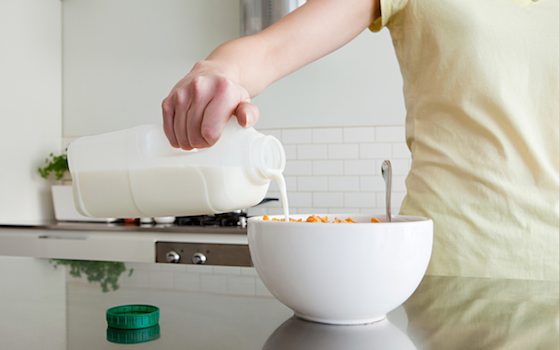- MENU
- HOME
- SEARCH
- WORLD
- MAIN
- AFRICA
- ASIA
- BALKANS
- EUROPE
- LATIN AMERICA
- MIDDLE EAST
- United Kingdom
- United States
- Argentina
- Australia
- Austria
- Benelux
- Brazil
- Canada
- China
- France
- Germany
- Greece
- Hungary
- India
- Indonesia
- Ireland
- Israel
- Italy
- Japan
- Korea
- Mexico
- New Zealand
- Pakistan
- Philippines
- Poland
- Russia
- South Africa
- Spain
- Taiwan
- Turkey
- USA
- BUSINESS
- WEALTH
- STOCKS
- TECH
- HEALTH
- LIFESTYLE
- ENTERTAINMENT
- SPORTS
- RSS
- iHaveNet.com: Aging
by Diana Kelly

Through no fault of your own, aging and hormones wreak havoc on your bones. Adults reach peak bone mass in their 30s. In the 10 years after menopause, women can lose up to 40 percent of their inner bone and 10 percent of their outer bone. [1]. But it's not just women who need to be vigilant -- up to a quarter of men over age 50 will break a bone due to osteoporosis. [2] However, osteoporosis is not inevitable; there are ways to help reduce the amount of bone you lose as you age.
Here are four strategies you can use to slow the slide
Hit Your Daily Calcium Target
Remember when Mom used to say, "Drink your milk to grow up big and tall?" She was right. Calcium, which is prevalent in dairy products, is the mineral that nourishes bone tissue. According to the National Osteoporosis Foundation (NOF), women over age 50 [3] should strive for 1,200mg/day, while men over age 70 should aim to get 1,200mg/day. [3] The NOF also recommends getting your calcium through food sources rather than pills, if possible. [3] This is easy to do since there are many healthful sources you can incorporate into your meals throughout the day: milk on your morning cereal, a salad full of leafy greens for lunch, a snack of a few squares of reduced-fat cheese, and broccoli at dinner. [3] While leafy greens are a good source of calcium, the calcium in these foods is not absorbed as well as the calcium found in dairy products, so be sure that veggies are not your only source of this important nutrient. [4]
Invest in Your D-fense
When it comes to bone health, vitamin D is vital, enabling the body to utilize all that calcium you're eating. [3] The NOF recommends men and women under age 50 get 400 to 800 International Units (IU) daily; 800 to 1,000 IU if older. [3] However, it's challenging to hit that target with food alone. (Fatty fish such as wild-caught salmon, mackerel, and tuna are the best natural sources.) That's why most experts recommend using vitamin D supplements to get your daily dose [3] -- just check with your doctor about any potential side effects and for the best option to meet your lifestyle and needs. [edit, 3]
Exercise This Way
Swimming and bicycling are great for weight control and heart health, but because the body is supported while doing them (by the water or bike) your bones don't receive much direct benefit. The solution is to add strength training to your workout regime. Bone responds to weight lifting like muscle does. Also, consider swapping one or two of your weekly swims or rides with a weight-bearing activity like walking, hiking, stair climbing, or tennis. [5]
Take Advantage of Your Annual Checkup
Your doctor has reliable ways to monitor all facets of your bone health and gauge your ongoing risk of osteoporosis. At your next checkup, share your family's medical history (a large component of the disease is genetic). And ask if you're a good candidate for a bone density test or one of the blood or urine tests that measure vitamin D and calcium levels. [6]
Sources
1.American Academy of Orthopedic Surgeons: Healthy Bones at Every Age
http://orthoinfo.aaos.org/topic.cfm?topic=a00127
2. National Osteoporosis Foundation: Just for Men
http://www.nof.org/articles/236
3. National Osteoporosis Foundation: Calcium and Vitamin D: What You Need to Know
http://www.nof.org/articles/10
4. NIH ODS: Dietary Supplement Fact Sheet Calcium
http://ods.od.nih.gov/factsheets/Calcium-HealthProfessional/
5.National Institute of Arthritis and Musculoskeletal and Skin Diseases: Exercise for Your Bone Health
http://www.niams.nih.gov/Health_Info/Bone/Bone_Health/Exercise/
6. National Osteoporosis Foundation: Making a Diagnosis
Diana Kelly is a New York-based freelance writer and editor with over 10 years' experience working for various media outlets including WeightWatchers.com, Prevention, Shape, Redbook, Men's Fitness and more
Article: Copyright ©
"Bone Up: Tips to Help Maintain Bone Health"